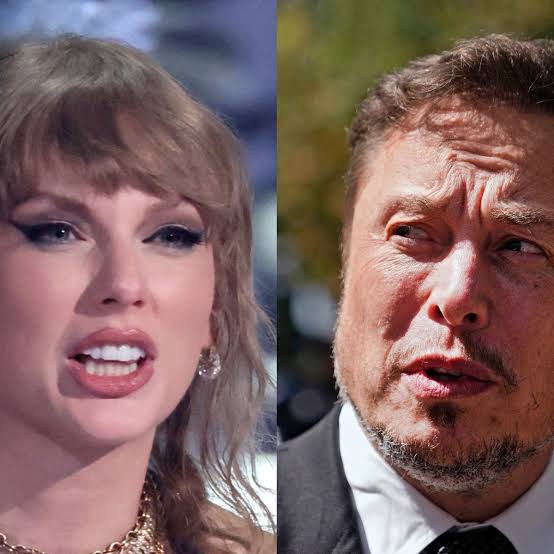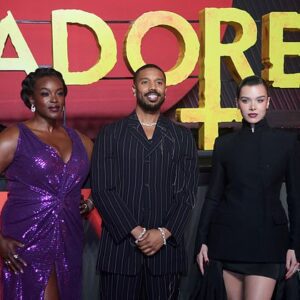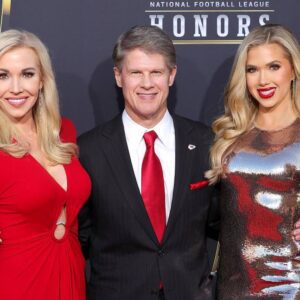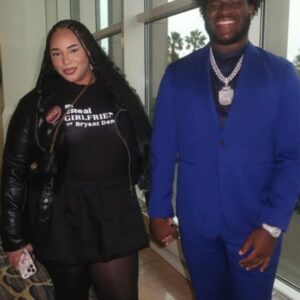“I hate it”: Elon Musk says “I’d rather drink sewage water than watch Taylor Swift at the Super Bowl”
In a shocking display of disdain for pop superstar Taylor Swift, tech mogul Elon Musk has taken his criticism of the singer to new heights.
In a series of scathing comments on social media, Musk expressed his vehement opposition to the idea of Swift performing at the Super Bowl halftime show, going so far as to say, “I’d rather drink sewage water than watch Taylor Swift at the Super Bowl.”
His comments, which have since gone viral, have sparked widespread debate and controversy, raising questions about Musk’s motivations and the broader dynamics of celebrity culture in sports.

A shocking statement
Known for his bold and often provocative comments, Elon Musk has never shied away from controversy. However, his latest comments about Taylor Swift have taken his usual brazenness to a whole new level.
When a fan suggested on Twitter that Swift could be chosen to perform at the upcoming Super Bowl halftime show, Musk wasted no time in sharing his strong feelings about the idea.
In a tweet that surprised many, Musk responded: “I’d rather drink sewer water than watch Taylor Swift at the Super Bowl.” This comment instantly went viral and sparked an avalanche of reactions from both Musk’s followers and Swift’s fans.
The statement, widely seen as hyperbolic and incendiary, underscores Musk’s apparent frustration with the massive celebrity spectacle that often accompanies major sporting events.

The root of hatred
Musk’s comments appear to be motivated by deep frustration over the growing involvement of celebrities, particularly those not associated with sports, in the world of professional athletics.
Taylor Swift, in particular, has become an increasingly frequent figure at major NFL games, especially following her reported relationship with Kansas City Chiefs star Travis Kelce. Her presence at these events has dominated headlines, shifting attention away from the sporting competition and toward her interactions with Kelce and other celebrities.
In recent months, Swift’s attendance at Chiefs games has generated enormous media attention, with her appearances often stealing the spotlight from the athletes themselves.
While Swift’s fans have welcomed her new connection to the NFL, others, including Musk, seem to feel her presence is a distraction from the main purpose of these events: celebrating and showcasing athletes.
Musk is known for criticizing the entertainment industry’s influence on sports. His comment about Swift may be a broader critique of the celebrity culture that infiltrates the NFL and, by extension, other major sporting events like the Super Bowl. In his view, the focus should be on the sport itself, rather than high-profile stars and their social circles.
A celebrity Super Bowl?
The Super Bowl halftime show has long been one of the most anticipated moments in American sports, drawing millions of viewers not only for the football but also for the star-studded musical performances.
Over the years, the NFL has brought in a roster of world-renowned artists, from Beyoncé to Shakira to Jennifer Lopez, to ensure the event remains culturally relevant and engaging to a wide audience.
Taylor Swift’s possible inclusion in this pantheon of artists seems almost inevitable, given her status as one of the world’s biggest pop stars.
However, for many NFL fans, this growing trend of celebrity appearances, coupled with increasing media attention to celebrities like Swift, has raised concerns.
They worry that the focus is shifting too far away from the sport itself, turning the Super Bowl into more of a spectacle than a celebration of football.
This sentiment appears to be reflected in Musk’s comment, as he suggests that Swift’s presence at such a flagship event would detract from its traditional essence.
Swift fans fight back
As expected, Taylor Swift’s loyal fans, known as “Swifties,” were quick to come to her defense.
Many expressed anger at Musk’s harsh words on social media, with some even mocking his comparison of the Super Bowl to “drinking sewer water.” For Swift’s fans, the idea of her performing at the Super Bowl is seen as a well-deserved recognition of her immense talent and cultural significance.
Swift’s supporters argue that her success in the music industry — spanning more than a decade of chart-topping albums, sold-out stadium tours and groundbreaking achievements — makes her the perfect candidate for the Super Bowl stage.
They also point out that Swift’s presence would attract millions of new viewers to the NFL, particularly from younger, more diverse audiences who have not traditionally followed the sport.
One Twitter user summed up the reaction by saying: “Elon Musk actually said he would rather drink sewer water than watch one of the most successful artists in the world perform at the Super Bowl… okay we get it you’re the richest guy on earth but maybe it would be better to just let people enjoy things?”
Musk’s history of controversy
This latest outburst from Musk comes as no surprise, given his history of provocative comments. Whether sparring with critics on social media, clashing with regulators, or making provocative remarks about various public figures, Musk has never been afraid to speak his mind. His outspoken nature has often earned him both admiration and criticism, and his comment about Swift is unlikely to be an exception.
Musk has already made headlines for his controversial views on other topics, from artificial intelligence to space exploration. Against the backdrop of his massive social media following and immense influence, his comments about Swift are likely to continue to fuel public debate for weeks to come.
Conclusion
Elon Musk’s statement that he would “rather drink sewer water” than watch Taylor Swift perform at the Super Bowl is another example of his tendency to make provocative and divisive comments.
His comments reflect a deeper frustration over the growing intersection between celebrity culture and sports, but they also shed light on the complex relationship between entertainment, athletics and the media.
While Musk’s comments may be seen by some as over-the-top and inflammatory, they also underscore the changing dynamics of major events like the Super Bowl, where celebrity influence continues to grow.
Whether or not Taylor Swift ends up performing at the big game, one thing is clear: This latest controversy is just the latest chapter in a long-running debate over the role of stars in professional sports and the limits of celebrity influence on the cultural landscape.





